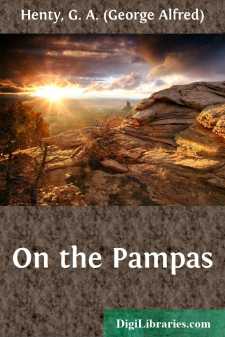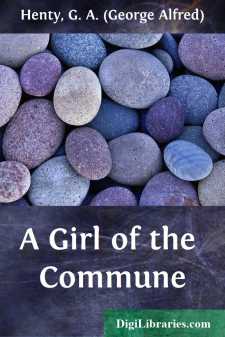Categories
- Antiques & Collectibles 13
- Architecture 36
- Art 48
- Bibles 22
- Biography & Autobiography 813
- Body, Mind & Spirit 142
- Business & Economics 28
- Children's Books 17
- Children's Fiction 14
- Computers 4
- Cooking 94
- Crafts & Hobbies 4
- Drama 346
- Education 46
- Family & Relationships 57
- Fiction 11829
- Games 19
- Gardening 17
- Health & Fitness 34
- History 1377
- House & Home 1
- Humor 147
- Juvenile Fiction 1873
- Juvenile Nonfiction 202
- Language Arts & Disciplines 88
- Law 16
- Literary Collections 686
- Literary Criticism 179
- Mathematics 13
- Medical 41
- Music 40
- Nature 179
- Non-Classifiable 1768
- Performing Arts 7
- Periodicals 1453
- Philosophy 64
- Photography 2
- Poetry 896
- Political Science 203
- Psychology 42
- Reference 154
- Religion 513
- Science 126
- Self-Help 84
- Social Science 81
- Sports & Recreation 34
- Study Aids 3
- Technology & Engineering 59
- Transportation 23
- Travel 463
- True Crime 29
The Young Carthaginian A Story of The Times of Hannibal
Description:
Excerpt
CHAPTER I: THE CAMP IN THE DESERT
It is afternoon, but the sun's rays still pour down with great power upon rock and sand. How great the heat has been at midday may be seen by the quivering of the air as it rises from the ground and blurs all distant objects. It is seen, too, in the attitudes and appearance of a large body of soldiers encamped in a grove. Their arms are thrown aside, the greater portion of their clothing has been dispensed with. Some lie stretched on the ground in slumber, their faces protected from any chance rays which may find their way through the foliage above by little shelters composed of their clothing hung on two bows or javelins. Some, lately awakened, are sitting up or leaning against the trunks of the trees, but scarce one has energy to move.
The day has indeed been a hot one even for the southern edge of the Libyan desert. The cream coloured oxen stand with their heads down, lazily whisking away with their tails the flies that torment them. The horses standing near suffer more; the lather stands on their sides, their flanks heave, and from time to time they stretch out their extended nostrils in the direction from which, when the sun sinks a little lower, the breeze will begin to blow.
The occupants of the grove are men of varied races, and, although there is no attempt at military order, it is clear at once that they are divided into three parties. One is composed of men more swarthy than the others. They are lithe and active in figure, inured to hardship, accustomed to the burning sun. Light shields hang against the trees with bows and gaily painted quivers full of arrows, and near each man are three or four light short javelins. They wear round caps of metal, with a band of the skin of the lion or other wild animal, in which are stuck feathers dyed with some bright colour. They are naked to the waist, save for a light breastplate of brass. A cloth of bright colours is wound round their waist and drops to the knees, and they wear belts of leather embossed with brass plates; on their feet are sandals. They are the light armed Numidian horse.
Near them are a party of men lighter in hue, taller and stouter in stature. Their garb is more irregular, their arms are bare, but they wear a sort of shirt, open at the neck and reaching to the knees, and confined at the waist by a leather strap, from which hangs a pouch of the same material. Their shirts, which are of roughly made flannel, are dyed a colour which was originally a deep purple, but which has faded, under the heat of the sun, to lilac. They are a company of Iberian slingers, enlisted among the tribes conquered in Spain by the Carthaginians. By them lie the heavy swords which they use in close quarters.
The third body of men are more heavily armed. On the ground near the sleepers lie helmets and massive shields. They have tightly fitting jerkins of well-tanned leather, their arms are spears and battleaxes. They are the heavy infantry of Carthage. Very various is their nationality; fair skinned Greeks lie side by side with swarthy negroes from Nubia....






















